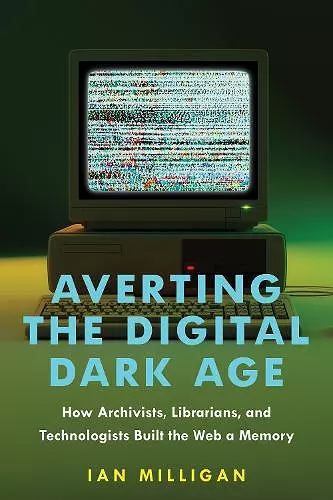Averting the Digital Dark Age
How Archivists, Librarians, and Technologists Built the Web a Memory
Format:Hardback
Publisher:Johns Hopkins University Press
Published:10th Dec '24
Should be back in stock very soon

How the internet's memory infrastructure developed—averting a "digital dark age"—and introduced a golden age of historical memory.
In early 1996, the web was ephemeral. But by 2001, the internet was forever. How did websites transform from having a brief life to becoming long-lasting? Drawing on archival material from the Internet Archive and exclusive interviews, Ian Milligan's Averting the Digital Dark Age explores how Western society evolved from fearing a digital dark age to building the robust digital memory we rely on today.
By the mid-1990s, the specter of a "digital dark age" haunted libraries, portending a bleak future with no historical record that threatened cyber obsolescence, deletion, and apathy. People around the world worked to solve this impending problem. In San Francisco, technology entrepreneur Brewster Kahle launched his scrappy nonprofit, Internet Archive, filling tape drives with internet content. Elsewhere, in Washington, Canberra, Ottawa, and Stockholm, librarians developed innovative new programs to safeguard digital heritage.
Cataloging worries among librarians, technologists, futurists, and writers from WWII onward, through early practitioners, to an extended case study of how September 11 prompted institutions to preserve thousands of digital artifacts related to the attacks, Averting the Digital Dark Age explores how the web gained a long-lasting memory. By understanding this history, we can equip our society to better grapple with future internet shifts.
Averting the Digital Dark Age is a clearly argued and relatively concise historical text....the book is highly accessible and relevant to a number of audiences. This is a useful read for historians concerned with the late twentieth and early twenty-first centuries as well as those involved in digital preservation as the book provides both historical context for the web today and a view into the development of the modern historical record.
—Journal of Contemporary Archival Studies
ISBN: 9781421450131
Dimensions: 229mm x 152mm x 21mm
Weight: 476g
208 pages